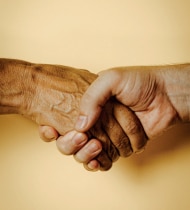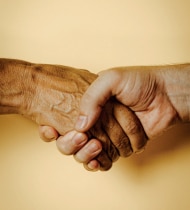Fazal Masood Malik and Farhan Khokhar, Canada
Ethics play a crucial role in Islam, advocating that the welfare of the individual or society is morally good, but any activity that promotes ill is ethically wrong. Islamic ethics dominate all domains of life, prescribing its followers to fiercely guard their behaviour, words, thoughts and intentions.
Muslims are reminded time and again to observe certain norms and moral codes in their family affairs, in dealings with relatives, neighbours and friends. Their business transactions, social affairs and public and private lives are not exempt from these rules. Muslims are reminded to consume what is halal (lawful or permitted) and tayyib (moral and ethical). Every effort should be exerted to avoid what is considered haram (unlawful or prohibited) as per fiqh (Islamic jurisprudence).
Given the aforementioned, the overall architecture of Islamic economic activity maintains a balance between satisfying the individual’s needs and that of society. Islam allows people to satisfy their needs and encourages making a profit. However, as greed and selfish pursuit of profits form basic human urges, Islam counters by laying down an elaborate system of taxation and charity. In this manner, economic activity remains morally and practically significant at both individual and societal levels. The concepts discussed below allow integrity and practicality of an economic system and ensure adaptability over time and geography.
The main Islamic economic principles as laid down by the Holy Quran can be established in the current economy with ease. They are broadly described as follows.
Achievement of falah (welfare)
The first and the foremost aim of Islam is the achievement of the well-being of humanity in this world and the next (Surah al-Baqarah, Ch.2: V.202; Surah Luqman, Ch.31: V.6-7; Surah al-A‘raf, Ch.7: V.158; Surah al-Maidah, Ch.5: V.36). The Holy Quran lays down a comprehensive, multi-layered concept of welfare as it refers to spiritual, moral and socioeconomic well-being in this world and success in the Hereafter. In general, Muslims hold that society should be working towards achieving a common and public good.
The economic system of Islam aims to achieve financial well-being and betterment of the people through equitable distribution of material resources and through the establishment of a socially and economically just system (Surah al-Qasas, Ch.28: V.78).
The Holy Quran also tells us:
“The alms are only for the poor and the needy, and for those employed in connection therewith, and for those whose hearts are to be reconciled, and for the [freeing of] slaves, and for those in debt, and for the cause of Allah, and for the wayfarer — an ordinance from Allah. And Allah is All-Knowing, Wise.” (Surah al-Taubah, Ch.9: V.60)
This verse clarifies that the reason for acquiring wealth is to ensure it is used for helping others. Practising sharing of wealth gives rise to general prosperity in society and an increase in the welfare of the people in that society.

Fair and equitable distribution: Adl (justice)
In Islamic teachings, if one principle was considered the overarching edict regarding socioeconomic aspects, that one principle would be justice. The focus of all teachings regarding economic and social policy in Islam is eradicating inequity, injustice, exploitation and oppression. This aim is considered absolute and impassable and forms an integral part of all permissible economic activities.
According to the concept of justice, a person may acquire wealth but cannot use any immoral or illegal means to do so (e.g., lying, cheating, or deception of any form.) It is also forbidden to exploit a weaker party with a better bargaining position (Surah al-Najm, Ch.53: V.39-40).
The Holy Quran emphasises written contracts. The debt verse of the Holy Quran lays out in great detail how a contract should be written. However, in the event of a verbal agreement, a person must hold true to their word, even if one party cannot enforce a contract or agreement. This commandment emphasises that promises (or contracts) made with another person are made in the presence of God (as a witness). Breaking such a promise (or contract) amounts to cheating and betrayal.
The Islamic principle of justice operates in every aspect of human activity, whether legal, social, political or economic. The Islamic economic system is based on the principle of justice that governs all the fundamental aspects of the economy, like production, distribution and consumption.
In the current world economy, the principles listed above from Islamic exegesis have been adopted by many nations into their commercial laws. Even online traders, such as Alibaba, enforce quality control and security of funding, further ensuring the consumer that their investment is protected.
One of the most significant contributions of Islam as a social and economic system is the maintenance of the just and equitable distribution of wealth. It stipulates those economic resources be distributed among the members of the community so that they not only bridge the gap between the rich and the poor but also provide for necessities of life for every member. (Surah al-Hashr, Ch.59: V.8).
Under Islamic Law, this is achieved via the bait-ul-maal (treasury). Although the bait-ul-maal was not established as an institution during the life of the Holy Prophetsa, his life in Mecca and Medina stands as a testament to the just and equitable distribution of wealth. The function and evolution of the bait-ul-maal will be discussed in the following article.
One way Islam teaches to achieve a fair distribution of wealth is by ensuring that wealth is not concentrated in the hands of a few. It is not only a theory or mere teaching but an established reality implemented via the legal system of Zakat. Together with charity and other voluntary almsgiving, Zakat also plays a significant role in this context. The instruction to observe charity was given in Mecca (Surah al-Dhariyat, Ch.51: V.20) (Surah al-Ma‘arij, Ch.70: V.25-6), but Zakat as an institution did not evolve (from a Quranic perspective) till 2 AH (Surah al-Baqarah, Ch.2: V.268-9). The reader should note that Zakat existed as a command much earlier than Islam. There are numerous mentions of Zakat in the Holy Quran. Hazrat Abrahamas and his followers understood this concept (Surah al-Ma‘arij, Ch.70: V.25-6), Hazrat Ishmaalas would practise it (Surah Maryam, Ch.19: V.55-6), the Jews (Surah al-Baqarah, Ch.2: V.84) and Christians (Surah Maryam, Ch.19: V.31-2) were all taught the concept of Zakat.
The reason for imposing Zakat finds its roots in the concept of humans as trustees of God. The major consideration is that the rich are not the real owners of wealth. They are merely trustees, and the actual owner of all resources is Almighty Allah.
The institution of Zakat is an extensive area of study, one beyond the scope of these articles. Suffice to say, one primary reason for instituting a system of Zakat is to discourage the hoarding of wealth and encourage its circulation. People who hoard wealth would know that if not invested, it would be consumed by Zakat. Consequently, they would bring it into circulation by investing in projects that favour society. Accordingly, such consumption and investment would then have a multiplier effect on the growth of the national economy.

Promotion of brotherhood and unity
Another ethical objective of the Islamic economic system is to establish brotherhood and unity among Muslims (Surah al-Baqarah, Ch.2: V.178).
The Holy Quran instructs its followers:
“They ask thee what they shall spend. Say: ‘Whatever of good and abundant wealth you spend should be for parents and near relatives and orphans and the needy and the wayfarer. And whatever good you do, surely Allah knows it well.’” (Surah al-Baqarah, Ch.2: V.216)
Thus, by instructing to pay Zakat and spend on family, orphans and the needy, Islam lays the foundations of belonging to a group with mutual obligations in a community.
Through his example, the Holy Prophetsa demonstrated that a Muslim is never alone but part of a larger collective. As a collective, we must work together towards harmonious living. Just as Salat brings about feelings of equality, charity furthers it by ensuring that we stand firmly in unity.
In an age of individualism and supremacy of the self, where peace is a desperate rarity, the concept of obligatory commitments to others can help build the foundation of a peaceful society. The root of many societal ills can be traced to economic imbalances among societies. The economy’s cyclical nature, being “boom, bust and echo,” can be avoided if the distribution of wealth was conducted selflessly, as mandated by Islam.
In the following article, we discuss the origin and development of the bait-ul-maal (treasury) from the blessed life and model of the Holy Prophetsa to the end of the period of Khilafat-e-Rashida.

